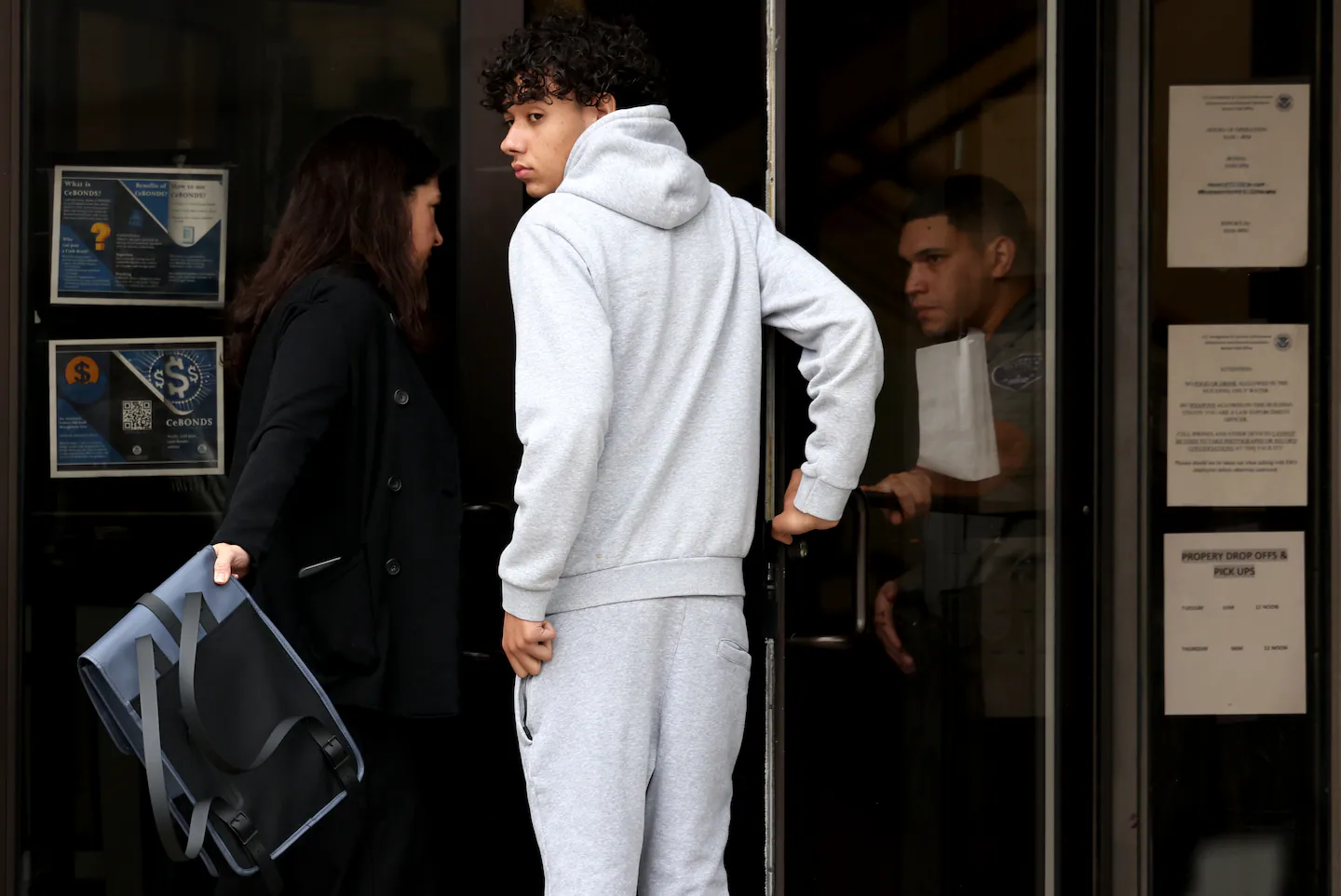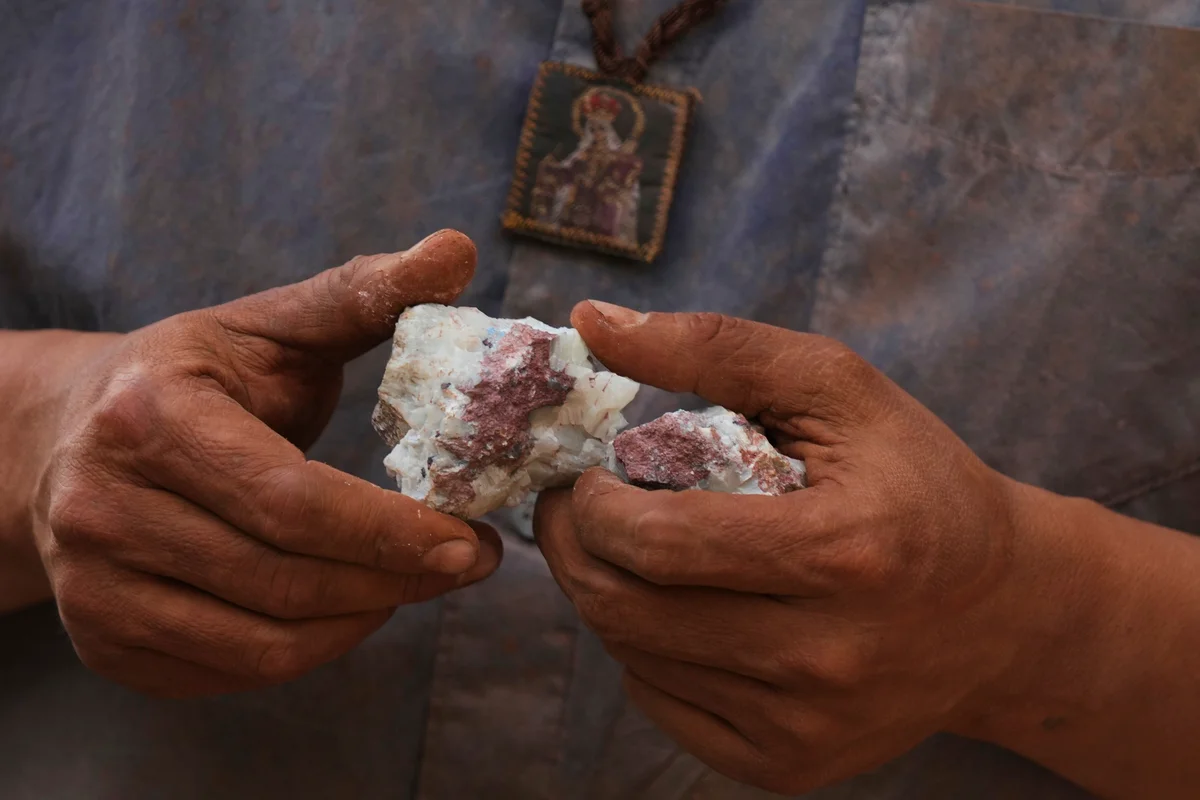
Oliveira, nodded, his eyes downcast. On the phone, Gustavo’s father pleaded with Seeber in Portuguese, asking multiple times: Are you sure he has to go in?
“If he doesn’t go, I’m worried they’ll show up at your house,” Seeber said to the father on the phone.
Children and teenagers like Gustavo, who does not have legal status in the US, have been increasingly caught up in the federal immigration enforcement dragnet, according to advocates and attorneys. The federal government has re-started the practice of detaining families with children, re-opening some family detention centers that had been shuttered for years.
In Los Angeles, a 15-year-old teenager with disabilities was briefly detained outside a high school last month before being released. In New York City, ICE agents detained a six year old girl along with her mother, after a routine check-in with ICE, and the pair was sent to a family detention facility in Texas. And in Maine, a 17-year old teenager was sent to a shelter for minors after being arrested by Border Patrol in March, the Globe reported – even though his mother was waiting for him back at their apartment in Lewiston.
The Trump administration earlier this month launched what they called “Operation Patriot 2.0” in Massachusetts, surging resources to the region for immigration enforcement. In Milford, residents say that ICE’s presence has been particularly visible in recent weeks.
On Friday afternoon, Gustavo had been arrested by ICE agents in downtown Milford after school while he was saying hello to a friend, whose car was stopped by immigration officials, according to his family and attorney. Spooked by the masked federal agents, he started running, Gustavo said in a brief interview Monday.
Gustavo said agents instructed him to stop. “Otherwise, they were going to shoot me,” he recalls agents telling him. So he stopped, and agents tackled the 6-foot, 130-pound teen to the ground. He had been wearing Crocs, which had fallen off while he was running. Now barefoot, he was handcuffed and led to an unmarked ICE vehicle.
ICE has not responded to multiple requests for comment about the case.
Governor Maura Healey condemned Gustavo’s arrest in a statement to the Globe, adding that the teen has no criminal background. “He isn’t a public safety threat, and he never should have been arrested,” Healey said. “These arrests by ICE aren’t about public safety, they are designed to sow fear and intimidation in our communities, and they make us all less safe.”
Gustavo was released a little over an hour following his arrest Friday. But ICE agents gave him a handwritten note, written in Portuguese, telling him to show up Monday morning for a check-in with the agency in Burlington.
On Sunday, dozens of community members rallied downtown on Sunday to protest the recent arrests, including Gustavo’s. He was the second Milford High School student arrested in the space of a few months. Marcelo Gomes da Silva, an 18-year-old senior, was apprehended by ICE in May on his way to volleyball practice, and held for six days at the Burlington ICE field office.
In a statement on Monday, Milford Public Schools Superintendent Craig Consigli said that the school district was aware of “community concerns following recent reports of immigration enforcement activity, including actions involving Milford students.”
“The Milford Public Schools is committed to providing a safe, supportive learning environment for every student,” Consigli said.
On Monday, more supporters, mostly Milford residents, showed up outside the ICE office in Burlington to support Gustavo, holding up hand-made signs. “16 year olds belong in school,” one sign read. “We stand with Gustavo,” another sign said.
Gustavo and Seeber entered the office just after 9 a.m., hoping for the best. About an hour later, they emerged, to cheers from the crowd.
For now, Gustavo is free. But for his parents, who also lack legal status, the agony is not over. ICE instructed them to report to ICE on Tuesday. The Trump administration has been detaining immigrants at their regular ICE check-ins or biometrics appointments.
“It feels like ICE is essentially bargaining, letting him go only to bring in the parents,” Seeber, who is executive director of Boston’s Mabel Center for Immigrant Justice, which provides pro bono legal assistance to immigrants, said after the appointment. “I think it’s likely the intention is to detain the parents tomorrow – which is another form of family separation.”
The family spent Monday trying to figure out who would take care of Gustavo if they are arrested.
“It’s very painful to see our son suffering, and we can’t do anything about it,” said Lenice Keila dos Reis, Gustavo’s mother, in an interview Sunday afternoon.
“We’re not criminals. We contribute to the country. We pay taxes,” said Itamar de Oliveira, Gustavo’s father.
The family of three moved to the US from the Brazilian town of Belo Oriente in 2021. They had made their way through Mexico, crossing the border in California, and turning themselves over to immigration authorities. They applied for asylum, but their claim was denied in June this year.
Their appeal of that decision is pending before the Board of Immigration Appeals, the highest administrative body for reviewing decisions from immigration judges.
In addition to worrying about separation and deportation, Gustavo’s parents are concerned about their son’s health. Since he arrived in the US, the teen has struggled with nausea, nose bleeding, dizziness, headaches, and difficulty breathing, according to his medical records. He was diagnosed with and treated for tuberculosis, and has had surgery for a deviated septum.
As he got older, Gustavo started struggling to walk, sometimes losing the ability to control his legs entirely. In 2024, he was diagnosed with functional neurological disorder at Boston’s Children’s Hospital, according to medical records reviewed by the Globe.
He often misses school because of his illness; he was absent for three days the week he was arrested. “He can’t sustain the weight of his own body, with his legs wobbling,” his mother said. On the day of his arrest, he had just started feeling better.
When he is healthy, Gustavo spends his days playing soccer, on his bike, or at the pool. He wants to become an electrician like his father.
Gustavo hasn’t been able to sleep since the arrest. A naturally quiet and introverted boy, he has retreated into himself even more, his parents said. He has mostly remained in his room, with the door closed.



